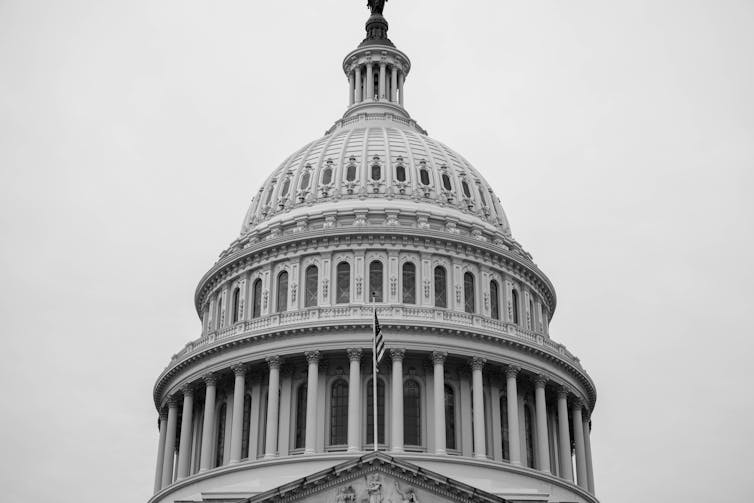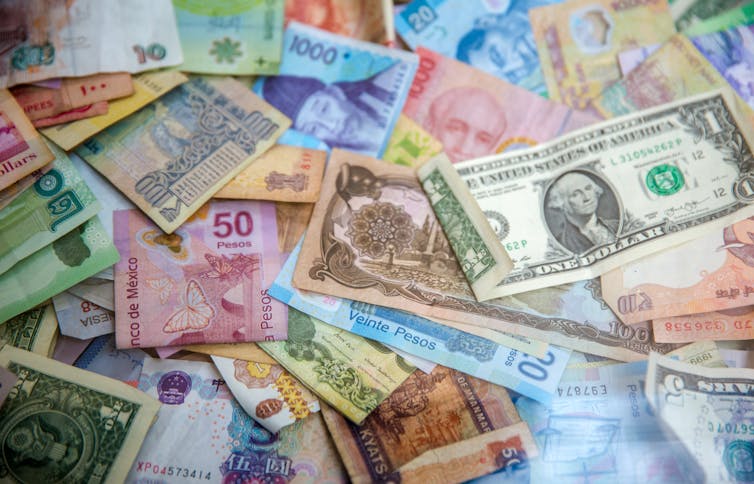By Amitrajeet A. Batabyal, Rochester Institute of Technology
A Chinese private equity firm, Primavera Capital Group, acquired the well-known test preparation company Princeton Review and an online learning platform, Tutor.com, in May 2023.
The move, like other Chinese investments in tech and those that deal with personal information, is increasingly drawing the attention of politicians, the U.S. government and national security experts – especially as tensions rise between the U.S. and China.
What remains unclear, however, is if this seemingly routine business acquisition was reviewed by the Committee on Foreign Investment in the U.S., which has authority to examine transactions involving foreign investment. The committee is largely prohibited from publicly disclosing any information filed with it, including if it is reviewing a transaction or if one was referred for review.
While the committee is hardly a household name, its mission and expanding oversight have important implications for the U.S. economy and national security.
Government oversight

joshua sukoff for Unsplash.com, CC BY
The Committee on Foreign Investment, a U.S. government interagency committee established in 1975 by President Gerald Ford, is tasked with studying and coordinating the implementation of policy on foreign investment in America.
Free Reports:
 Get our Weekly Commitment of Traders Reports - See where the biggest traders (Hedge Funds and Commercial Hedgers) are positioned in the futures markets on a weekly basis.
Get our Weekly Commitment of Traders Reports - See where the biggest traders (Hedge Funds and Commercial Hedgers) are positioned in the futures markets on a weekly basis.
 Sign Up for Our Stock Market Newsletter – Get updated on News, Charts & Rankings of Public Companies when you join our Stocks Newsletter
Sign Up for Our Stock Market Newsletter – Get updated on News, Charts & Rankings of Public Companies when you join our Stocks Newsletter
Investment by foreign countries greatly benefits the U.S., supporting 10.1% of the total labor force in 2019. Yet beginning in the 1980s, the federal government grew increasingly concerned about potentially harmful effects of foreign investment in the U.S. For example, if a foreign firm gets control of sensitive technologies, it could hurt national competitive advantages or even threaten national security.
The primary objective of the committee is to review selected foreign investments and some real estate transactions by foreigners in the U.S. for their national security implications. Real estate transactions are generally scrutinized only when a transaction involves land that is either close to a military base or near an airport or seaport.
 Business deals by foreign countries in the U.S. can be reviewed by the government for national security risks.
Business deals by foreign countries in the U.S. can be reviewed by the government for national security risks.
Jason Leung for Unsplash, CC BY-SA
Vetting foreign investments
In the 1980s, political concern grew about Japanese investment and, specifically, the proposed purchase by Japanese computer giant Fujitsu of chipmaker Fairchild Semiconductor. The purchase of Fairfield Semiconductor was considered a sensitive industry, with potential defense applications, and prompted Congress in 1988 to pass the Exon-Florio amendment to the Defense Production Act of 1950.
This amendment empowered the committee to not just review foreign investment deals but also to recommend rejecting them. Acting on its recommendation, a U.S. president could block a foreign transaction on “national security” grounds. For instance, in 1990, President George H. W. Bush voided the sale of MAMCO Manufacturing, which made metal parts for airplanes, to a Chinese agency, ordering the China National Aero-Technology Import & Export Corporation to divest itself of the Seattle-based company.
adi goldstein for Unsplash.com
In the context of a committee review, the term national security typically refers to foreign transactions that could cause significant outsourcing of jobs, a loss of control over agricultural supply chains, the sharing of sensitive technologies, control of a firm that satisfies defense needs, or the impairment of critical infrastructure.
Strengthening the committee
In 2006, Dubai Ports World, owned by the United Arab Emirates government, was about to gain managerial control of six U.S. ports in a major deal. Because of terrorism-related concerns, Sen. Chuck Schumer led a campaign against this proposal and the transaction was eventually called off, even though it had initially been approved by both the committee and President George W. Bush.
Damian Kamp for Unsplash.com, CC BY
In the aftermath of this controversy, lawmakers passed the Foreign Investment and National Security Act in 2007, giving Congress greater oversight of the committee to ensure that potential acquisitions were adequately reviewed. In addition, it required the committee to scrutinize all foreign investment deals in which the pertinent overseas entity is either owned or controlled by a foreign power.
National security concerns
Over time, the Committee on Foreign Investment has been given more power to reflect and act on the political and economic concerns of the U.S.
China, for example, appears to have global ambitions to replace the U.S.-led world order. As it gains geopolitical power, China has come under increased scrutiny by the U.S., with public support to get tough with China on economic issues. In response to these concerns, concrete steps have been taken by U.S. lawmakers to increase the scope of what the committee is able to do.
In 2018, President Donald Trump signed the Foreign Investment Risk Review Modernization Act, giving the committee new powers over certain types of foreign investment that affect many Chinese investors. In the two-year period after the passage of the act, transaction registrations from Chinese investors fell by 43%.
In 2022, President Joe Biden signed an executive order directing the committee to sharpen its investigation of foreign investment deals that could negatively affect cybersecurity, quantum computing, biotechnology and sensitive data. The Committee on Foreign Investment is now more powerful than it has ever been, and it is a gatekeeper on major foreign investment deals.
The U.S. is not alone in examining foreign investment deals for national security implications. In recent times, the United Kingdom, the European Union and Australia have either created or strengthened existing regulations to more carefully police foreign investment deals, particularly those originating in China.
It remains to be seen what the long-term implications of these expanding powers of the Committee on Foreign Investments in the U.S. will be.![]()
About the Author:
Amitrajeet A. Batabyal, Distinguished Professor, Arthur J. Gosnell Professor of Economics, & Interim Head, Department of Sustainability, Rochester Institute of Technology
This article is republished from The Conversation under a Creative Commons license. Read the original article.

- Oil and gas prices are rising on the back of another decline in inventories. Dec 30, 2024
- The RBA may go for a rate cut in February. New Zealand dollar is falling amid recession in the economy and RBNZ’s dovish stance Dec 27, 2024
- Flashpoint Friday: Bitcoin and Yen traders brace for Dec. 27 volatility Dec 26, 2024
- Canadian dollar declines after weak GDP data. Qatar threatens EU to halt natural gas exports Dec 24, 2024
- Goldman Sachs has updated its economic projections for 2025. EU countries are looking for alternative sources of natural gas Dec 23, 2024
- COT Bonds Charts: Speculator Bets led by SOFR 3-Months & 10-Year Bonds Dec 21, 2024
- COT Metals Charts: Speculator Bets led lower by Gold, Copper & Palladium Dec 21, 2024
- COT Soft Commodities Charts: Speculator Bets led by Live Cattle, Lean Hogs & Coffee Dec 21, 2024
- COT Stock Market Charts: Speculator Bets led by S&P500 & Russell-2000 Dec 21, 2024
- Riksbank and Banxico cut interest rates by 0.25%. BoE, Norges Bank, and PBoC left rates unchanged Dec 20, 2024
